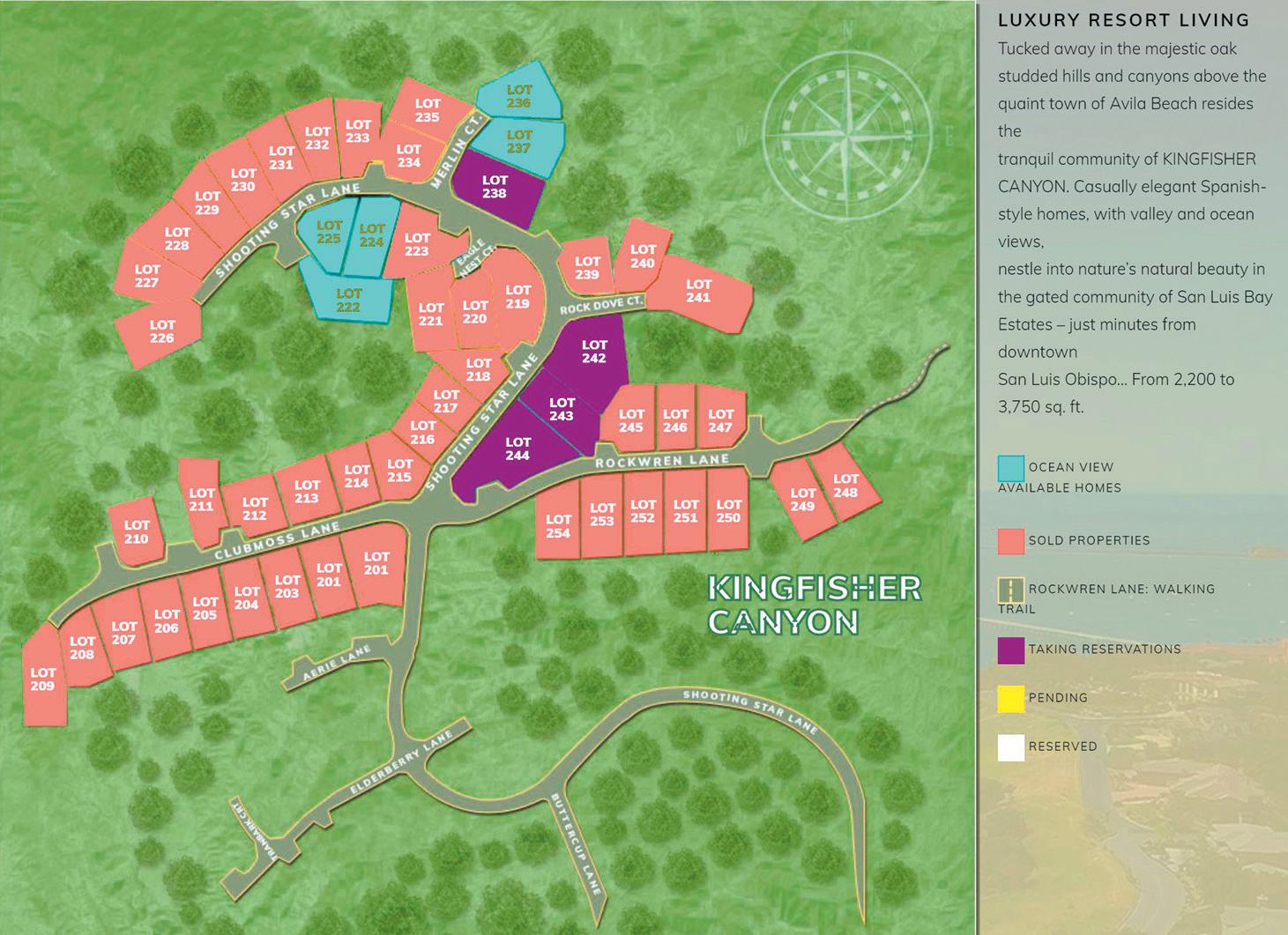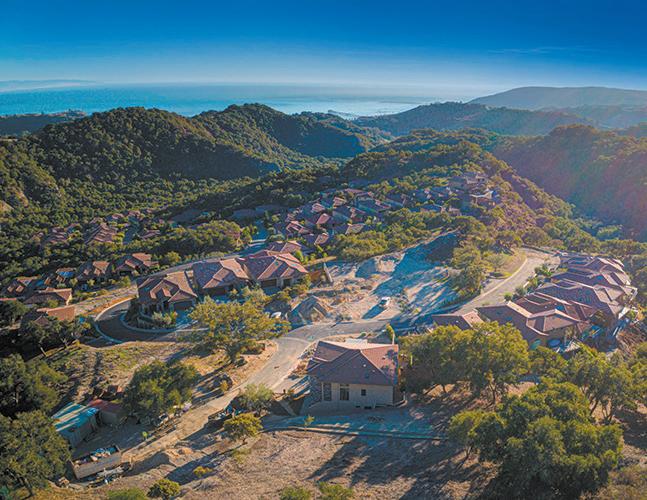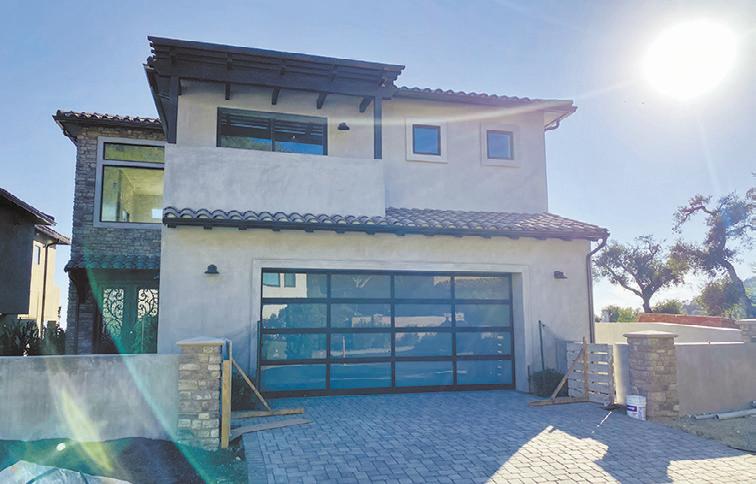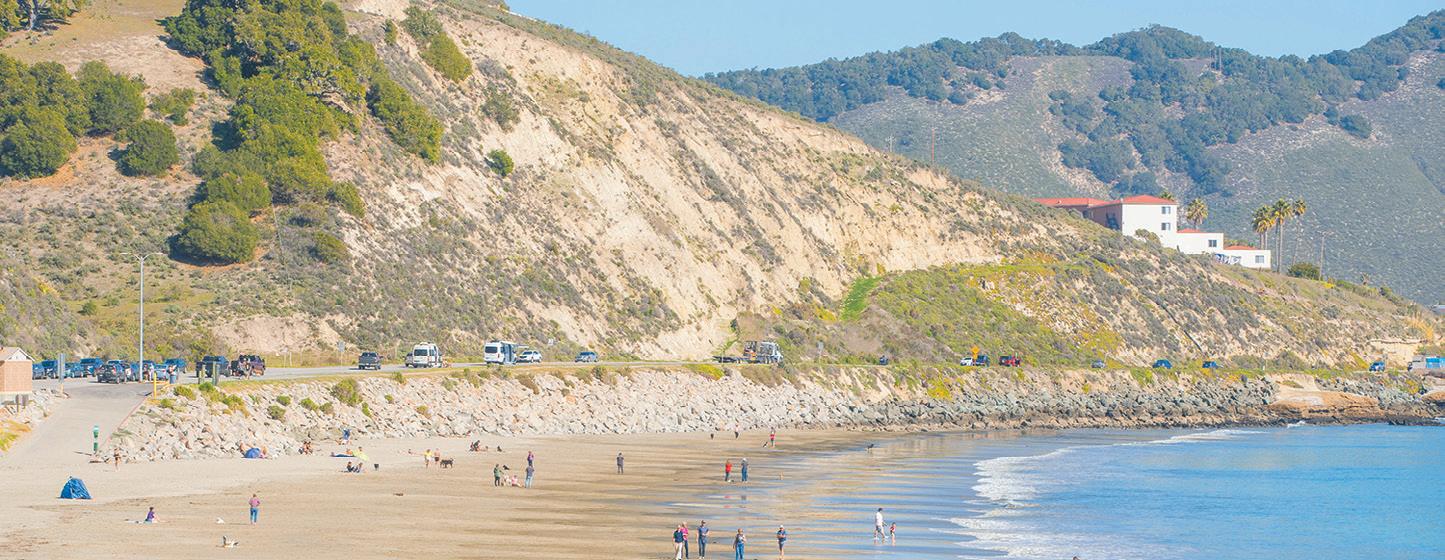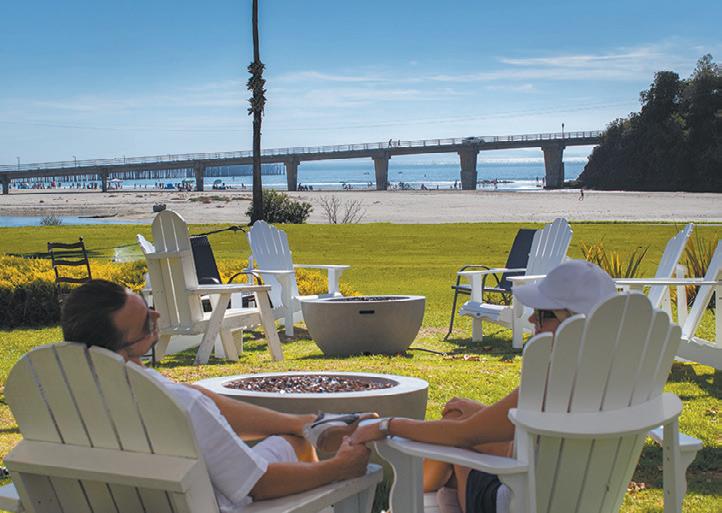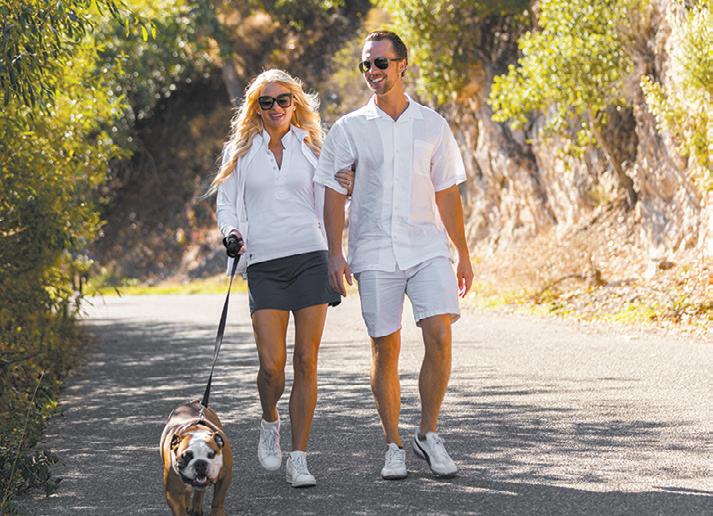

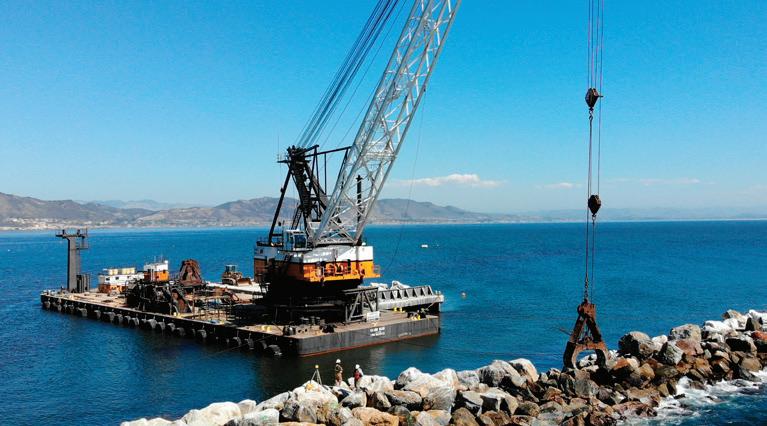






Happy Holidays! We are beyond excited to welcome back all of our old-time favorite holiday events that have been dormant for the last two years. Living in a small town such as ours, we love and cherish our community events. Getting out and seeing one another, catching up with old friends and colleagues, taking the time to be present and slow down long enough to make memories while enjoying the coldest time of the year.
Living in a community such as ours allows us to do that as well; attending the tree lighting and parades, walking around the lake, and driving around to see all the twinkling lights are a part of the tradition as well. We are grateful for a community who believes in keeping the magic alive by pulling us all in close so that even if we have a small or large family, we are all welcome.
We are grateful to all of you for keeping the spirit alive and reading our publications each month. We love our community and wish you all a very happy holiday season, no matter what you celebrate during this time of the year.

Happiest of Holidays and much love, Hayley, Nic, and family
Giancarlo grew up and studied at Istituto professionale alberghiero Armando Perotti, Bari Italy and has traveled the world before landing his first restaurant in San Francisco. He moved to Morro Bay in 2003, where he ran Giancarlo’s Ristorante.
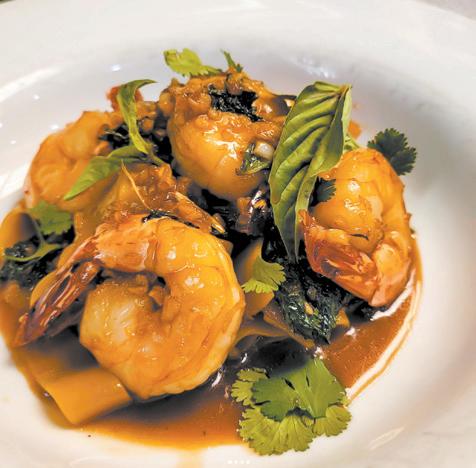
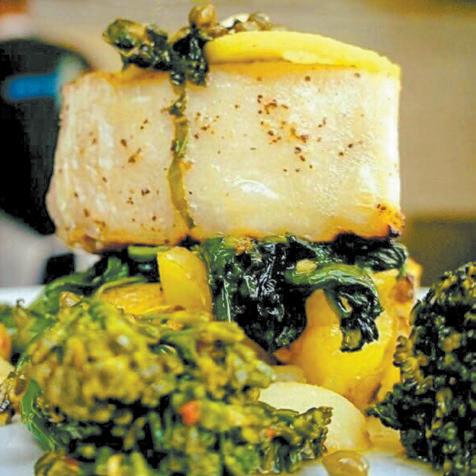
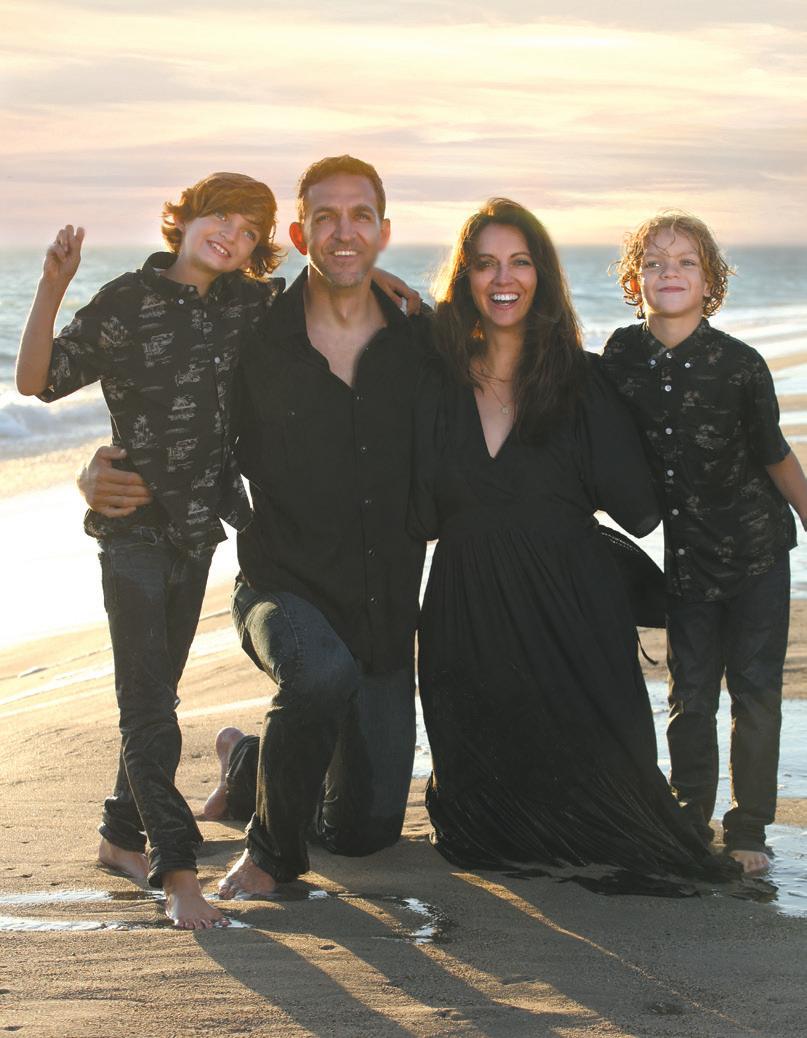
Winner of many awards and festival competitions, and served as the celebrity chef at the Gilroy Garlic Festival.



Giancarlo brings his talents to Avila Beach as the new Executive Chef of Ocean Grill, Giancarlo Cucumo lights up the kitchen with a blend of seafood and italian with signature dishes and a seasonally rotating menu that promises to keep it interesting.
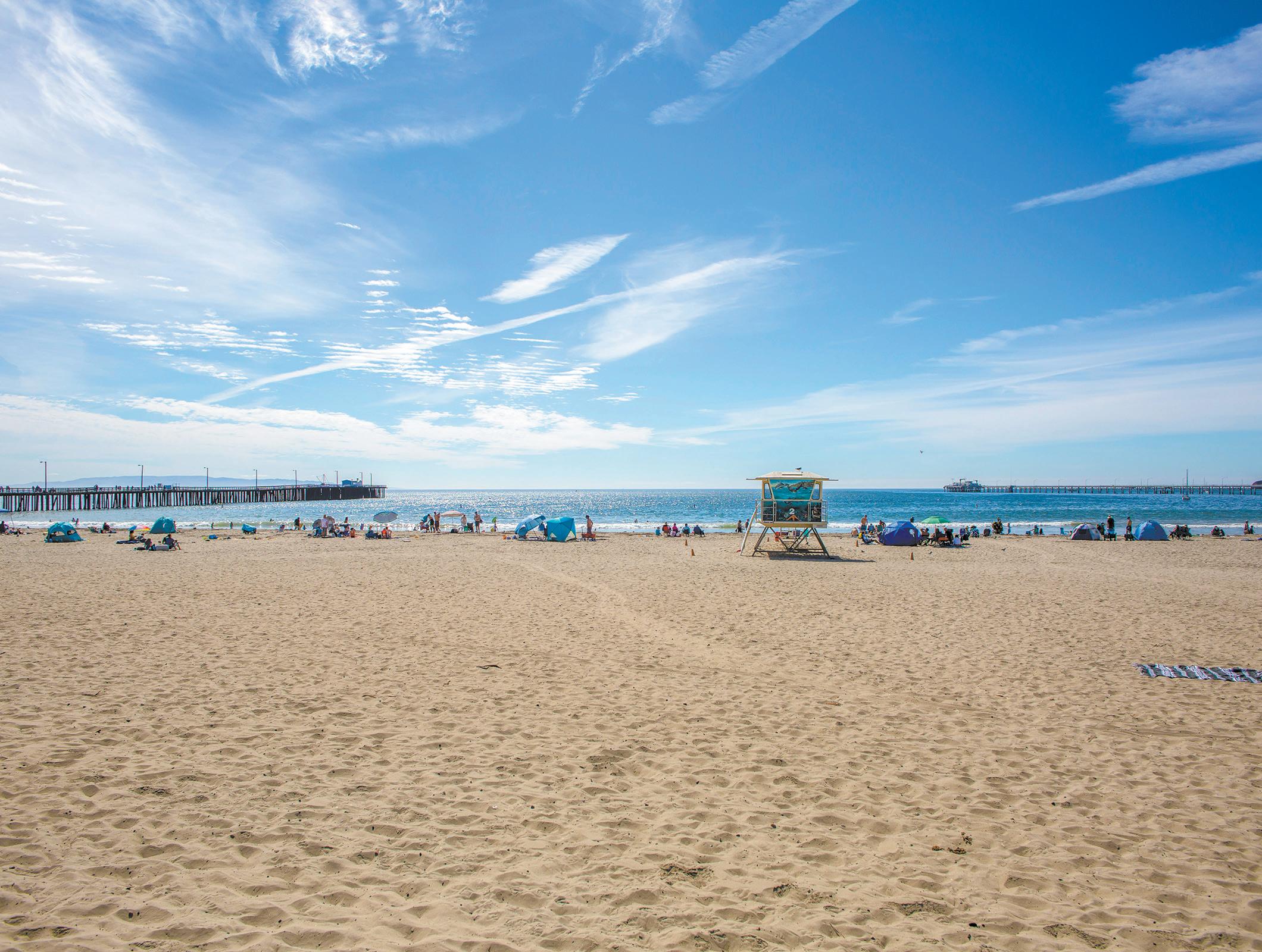
Come for the food and stay for view at the all-new fireside patio overlooking the beautiful Avila Beach coastline. Enjoy breakfast, lunch or dinner with extended hours and expanded menu options.
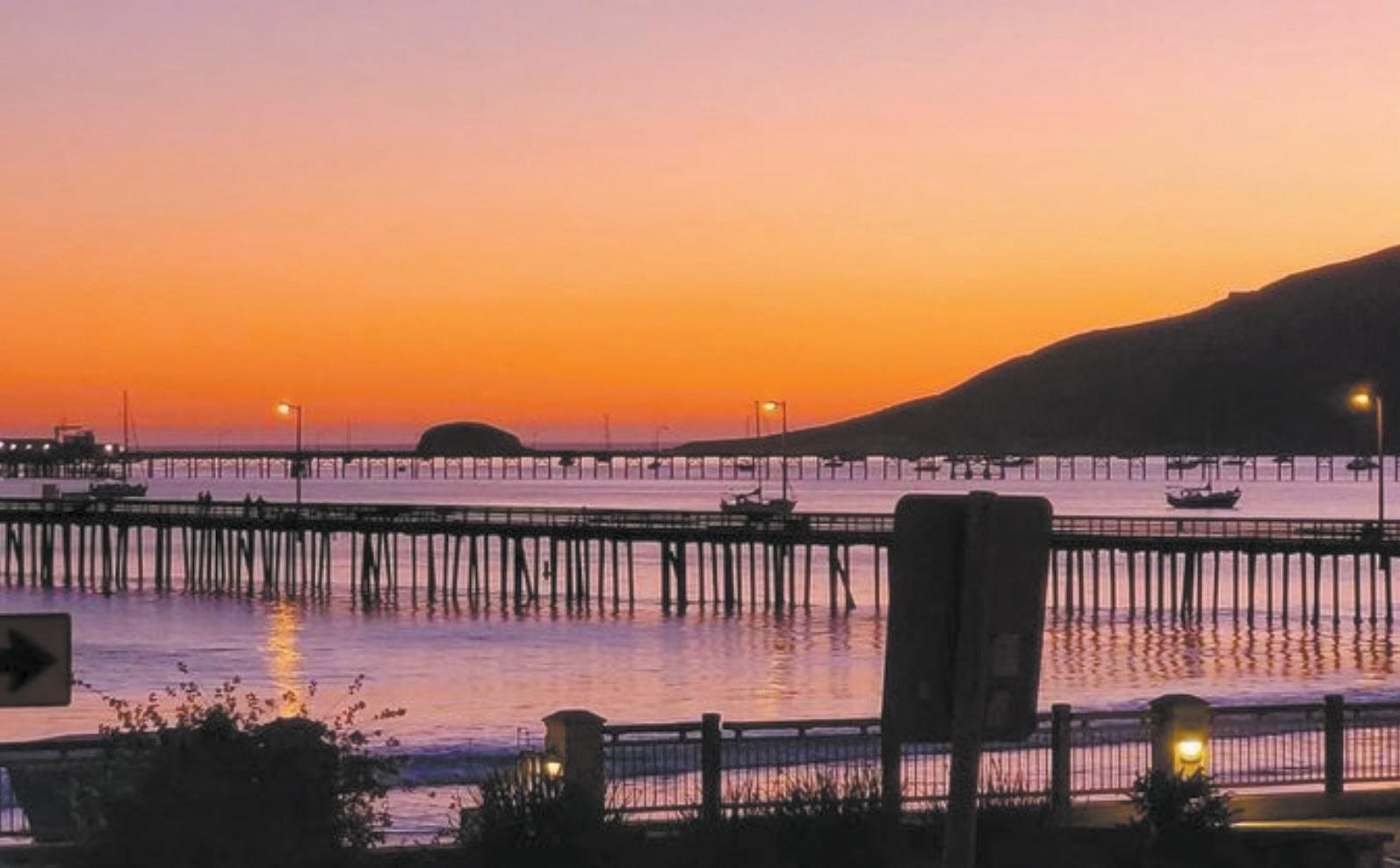
• oceangrillavila.com


(lunch) & 4-8:30pm (dinner)
11:30am-2:30pm (lunch) & 4-8:30pm (dinner)

“Winter, a lingering season, is a time to gather golden moments, embark upon a sentimental journey, and enjoy every idle hour.”
— John Boswell
Greetings, fellow Avilones. Here we go again. With Thanksgiving safely in the rearview mirror, we now focus our collective energies on the rapidly approaching Christmas and Hannukah celebrations. Or, some of you may honor “Festivus,” which is a secular holiday, normally celebrated on Dec. 23, mainly meant as an alternative to the pres sures and commercialization of the Christmas season. However, it has also become a day to celebrate the ever-lasting comedy of the 1990s television show “Seinfeld.” Originally created by author Daniel O’Keefe in the 1960s/ ‘70s, “Festivus” entered popular culture after it was made the focus of the 1997 “Seinfeld” episode “The Strike,” which O’Keefe’s son, Dan
O’Keefe, co-wrote.

OK, now that you are officially updated on trivial matters, let me bring you up to speed on something more substantive.
The Avila Beach Community Foundation Board of Trustees met on Nov. 10 to deter mine grant awards to be used for the coming year. The total amount we allocate each year is greatly affected by the current value of our investment portfolio, which is tied solely to the stock market. As you are likely aware, stocks have taken a huge hit this year, as has our port folio (down more than 20 percent), so, unfortu nately, we have had to reduce the total amount of funds available. For this round of funding, we have allocated a grand total of $50,000 (down roughly 10 percent from the last round).
Grants were awarded to: Avila Beach Civic Association, Avila Beach Junior Lifeguards Program, Bellevue-Santa Fe Charter School, Cancer Well-Fit Program at the Avila Bay Club, Central Coast Aquarium, KCBX Public Radio, Noor Foundation of San Luis Obispo, Operation Surf, People’s Self Help Housing at Lachen Tara in Avila Beach, Pt. San Luis Lighthouse Keepers, Port San Luis Harbor District Doggy Doo Bags, Surfrider Foun dation, Avila Beach Free Trolley, Avila Beach Life News Publication.
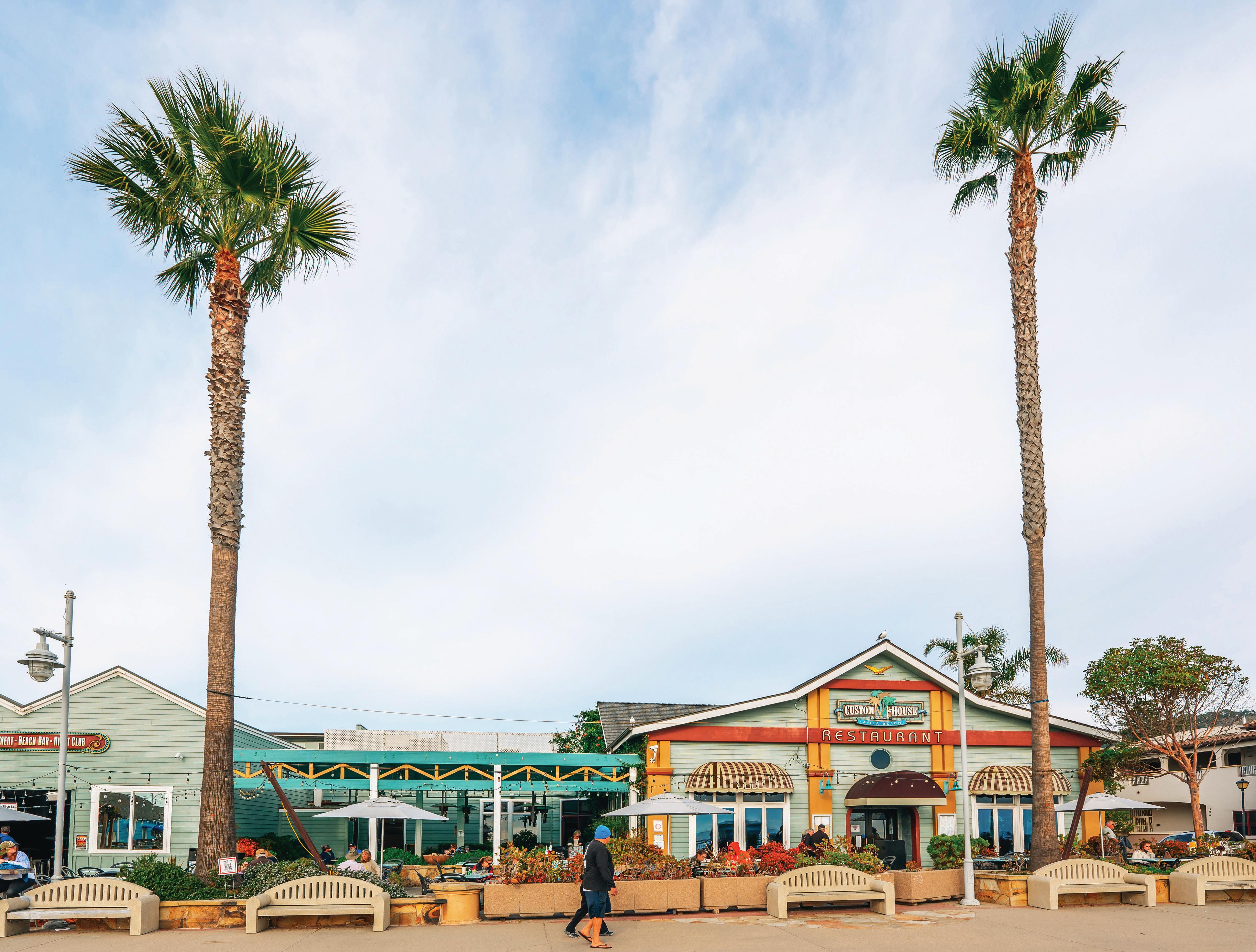
Having to cut grant allocations is
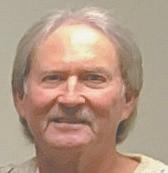
painful for nonprofit community foundations of all sizes. But in most cases, the funds avail able are tied to portfolio values, the product of investments in the stock market. Lowerrisk strategies are common to reduce some of the gambling aspects of market investing. The Avila Beach Community Foundation port folio is managed by a UBS affiliate who has guided through market ups and downs since 2006. Hopefully, next year will be better, and we can return to greater funding capabilities. That being said, we are proud to have been able to infuse more than $3 million in the greater Avila Beach community since grant-making was launched in 2001.

Preview of Coming Attractions: It’s in the works! If you like learning about the colorful history of Avila Beach, keep your eyes open for an event being planned for the spring of 2023. The “Foundation” has been in discus sions with local historian Pete Kelley, who has in his possession an incredible treasure trove of old-time photos and stories about Avila in the early days. Pete will share these photos and his knowledge via a slide-show presen tation sure to delight all who attend the event. Announcements and details will be released in the near future.
Coming to an Intersection Near You: In case you haven’t heard, plans are underway for the construction of a roundabout at the Avila Beach Drive/Hwy 101 intersection. SLO County Public Works and Caltrans are overseeing the project, which comes with a $12,500,000 price tag. Now entering Phase III of the planning process, construction is esti mated to begin mid-year 2023 and take two years for completion. The project also includes a Park & Ride car lot and an Avila Trolley and bus stop. The roundabout is designed to accommodate multi-safety features for vehic ular, cyclist, and pedestrian traffic.
Last but not least are two things I remind you of each December: Cal Fire Battalion Chief Paul Lee says it’s time to replace the batteries in our smoke alarms and check our carbon monoxide detectors. The seasonal changes in daylight savings each year are the perfect periods to complete these tasks. Also, I urge you to always purchase your postage and ship your packages at our local Avila Beach Post Office to keep it financially viable. We are so fortunate to be able to avoid the long lines at busier post offices in SLO County, and the friendly and helpful services of Cindy, Mary, and Julie are greatly appreciated.
That’s all for now. See you at the beach!
“There are three principal phases of a bear market: the first represents the abandonment of the hopes upon which stocks were purchased at inflated prices; the second reflects selling due to decreased business and earnings, and the third is caused by distress selling of sound securities, regardless of their value, by those who must find a cash market for at least a portion of their assets.”
It’s quite possible we have finished phase 1 and are now in phase 2. If so, it may be well to heed Lao Tzu, who states: “If you realize all things change, there is nothing you will hold on to.”
It’s obvious “things” have changed considerably. For example:
1) Interest rates have skyrocketed—Fed Rate was at 0% at the start of the year and is now at 4.0%^
2) Inflation is running near 8%^^
3) Poor demographics in the western world and China/Japan creating labor pressures
4) Mass increases in government and central bank debt reducing their ability to prevent downturns While one can never discount the possibility of stock markets going up for whatever reasons, we may be in for a long slog with little overall gains as markets re-value based on the new paradigm. With this in mind, and with fixed rates of interest at 5+%, maybe it’s time to figure out a way to de-risk your portfolio, possibly using fixed interest and “buffered”* stock market index-linked accounts. To learn more, please visit our website and/or call for a time to review your situation (no obligation or fee).
Hi All — Ho! Ho! Ho! It is time for Santa’s Doggie Parade to be held on Saturday, Dec. 10, at 11 a.m., with registration and check-in time from 10 to 11 a.m. in front of The Old Custom House (see flyer on page 2). This year, Adam Montiel from “Up in Adam in the Morning” will be our Grand Marshal
with
and still barks about it! We will also be fortunate enough that our very own Santa Claus will be taking pictures with our furry friends--and their families, of course--and other surprises that day.
I hope you will join us and be part
of this fun event with or without your pet(s) and see what Santa brings you. In addition, Petco Arroyo Grande will once again donate doggie treat bags for each participant.
Please check out our website at avilabeachcc.com for your registration form. See you at the parade!

In order to bring all of you up to date on the history and activities of the Avila Beach Community Services District (District), I asked Brad Hagemann, General Manager, to tell us what has been going on over the past years. He responded to my request as follows:
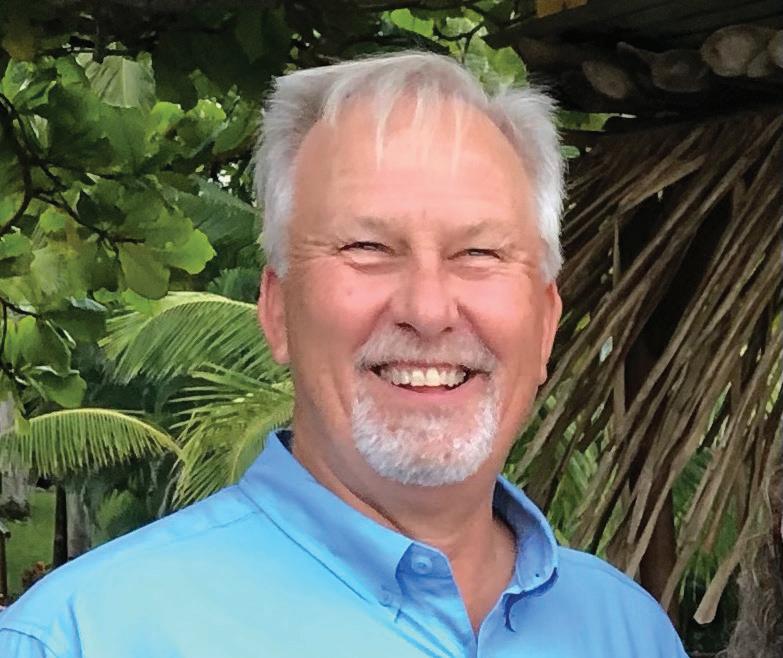
As you may know, the District was formed in 1997 and took on the responsibility of managing the water, wastewater, street lights, garbage, and fire protection services within the District’s service area. The District has five elected Board members, a part-time general manager (yours truly), and a parttime office manager, Kristi Dibbern. The Board members and I pretend we are in charge, but we all know that Kristi runs the show!! I came on board with the District in 2015 after working in the utilities industry on the Central Coast for the previous 35 years. After growing up in Southern California, I feel fortunate to have had the opportunity to remain on the Central Coast, doing the work that I enjoy and striving to have a posi tive impact while balancing the needs of the ratepayers, the environment, and our natural resources.

The District uses a number of mechanisms to meet its various public service responsi bilities. We have a Franchise Agreement with South County Sanitation Services for solid waste services and an annual contract with Cal Fire to provide fire protection services. Fire services are provided out of Station 62, located just off of Avila Beach Drive and Sparrow Lane. I am sure some of you still remember when the District had its own volunteer Fire Department located at 100 San Luis Street. The District office is now located in the former Fire Depart ment building. Feel free to drop by and take a look at some of the photographs of “old Avila”, including the Fire Department crew. As utility districts go, the Avila Beach CSD is relatively small, serving approximately 400 residential and commercial customers. We have an equally small staff. Operations and maintenance of the water and sewer facili
ties are accomplished by a contractor, Fluid Resource Management, and we retain an electrical contractor when we need to work on the District-owned street lights.
Kristi and I spend most of our time managing the systems that bring water to our customer’s homes and businesses, as well as the wastewater collection, treatment, and disposal system that treats the waste water to meet State discharge permit limits. Our water supply comes from surface water sources that, include Lopez Lake and the State Water Project. The State Water Project brings raw water down from Northern Cali fornia, through San Luis Reservoir and treats the water to drinking water standards at the Polonio Pass Water Treatment plant located off of Highway 46 just east of the Hwy 41/46 Y. The Lopez Lake water is treated at the Lopez Lake Water Treatment Facility by the
County of San Luis Obispo staff and then delivered via pipeline to the District.
The District’s wastewater treatment plant (WWTP) is located on Avila Beach Drive at the intersection of San Miguel Street. The plant was initially built in the early 1960s to provide wastewater treatment and disposal for Avila Beach and the Port San Luis Harbor District. The District and the Harbor District upgraded the plant in the mid-1990s to improve the quality of the effluent discharged to the ocean and meet all the upgraded state and federal permit discharge requirements. The effluent that is currently discharged to the ocean is treated to reduce pollutants and disinfected to meet all water contact health requirements.
The exciting news is that the District is now about 70 percent complete with another significant WWTP improvement project
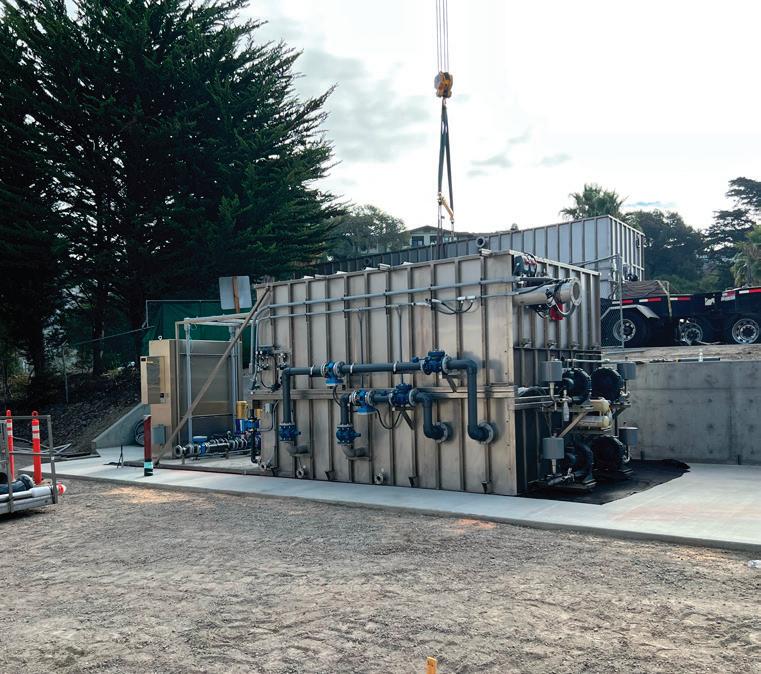
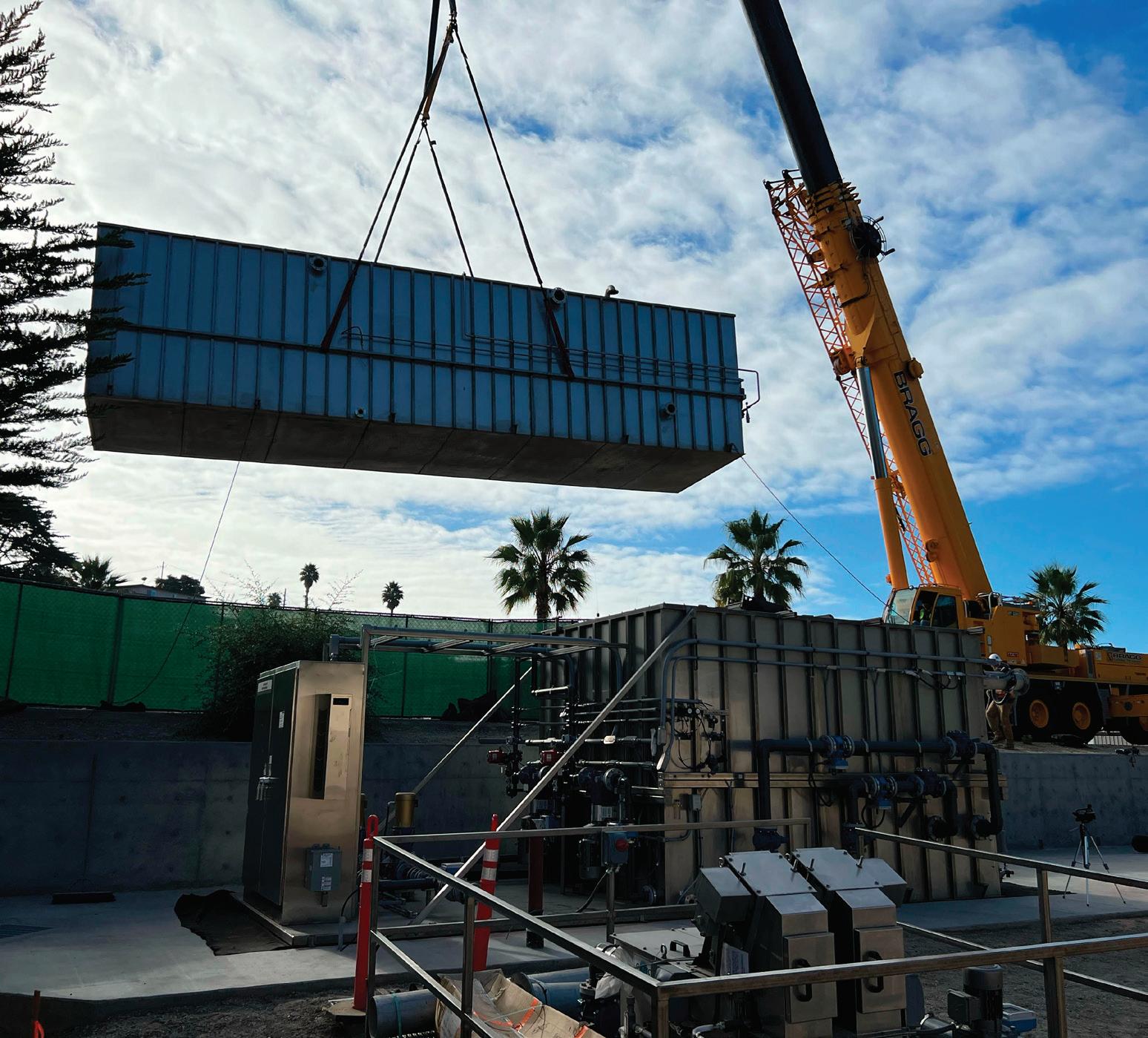
that will further reduce pollutants and treat the water to a level that it is almost suitable for direct use on the Avila Beach Resorts golf course. The golf course owners will likely need to provide an additional filtration and UV disinfection treatment process to provide what is referred to as “tertiary, unrestricted recycled water” that can be used directly on the golf course. Unfortunately, supply chain issues have delayed the delivery of some of the key electrical components, but we hope to have the WWTP improvement project completed by April or May of next year. As most of you know, we are currently in an extreme drought situation in most of the western United States. Please continue to use our water wisely and pray for rain! Feel free to call or stop by the District office if you have any water conservation or water recycling questions.
This year’s Seattle Dog of the Year for National Dog Day, August 26, is our Pet of the Month, Bodhi. Chris Johnstone, son of Tom and Terry Johnstone of Indian Hill, adopted Bodhi two years ago when he was six weeks old during the COVID-19 pandemic. Chris has continued to work from home for most of his time, but his employer encourages staff to bring their dogs to work on Fridays. Bodhi was named
after Chris’s favorite beer, Bodhizafa, from Georgetown Brew ery in Portland, Oregon.
Bodhi loves to feel the wind in his fur, paddle board with his dad in Puget Sound, and play with other dogs. Bodhi is a sweet mini–Australian Shepherd who loves to play with Chris’s sister Amanda’s Husky Loki and go to the Dog Beach when in Avila Beach.

MONTH’S
THE MONTH Please send your pictures and a short paragraph about your pet to avilabeachcc@gmail.com Thanks, and introduce us to your furry friend next month!

 his award-winning dog Giorgi… OK, he won the Funniest Dog costume in 2021
The District is about 70 percent complete on improvements to make the water an acceptable level for use on the Avila Beach Resorts golf course. Contributed Photos
The District’s wastewater treatment plant is located on Avila Beach Drive at the intersection of San Miguel Street.
his award-winning dog Giorgi… OK, he won the Funniest Dog costume in 2021
The District is about 70 percent complete on improvements to make the water an acceptable level for use on the Avila Beach Resorts golf course. Contributed Photos
The District’s wastewater treatment plant is located on Avila Beach Drive at the intersection of San Miguel Street.
Port San Luis is a captivating place to visit, with beautiful views of the bay and the surrounding hills. There are diverse types of boats to observe, sea lions and seals diving and barking, otters skillfully cracking open a meal on their chest, plenty of bird activity, and of course, fishers bringing in their proud catch. It is free ocean enter tainment at its finest.
Over the last few months, there had been an abundance of activity along the break water. A massive 350-ton crane was moving rocks all around. The activity was visible from Grover Beach to Avila Beach. A prime loca tion to watch the action was at the very end of the Harford Pier. By now, most Avilones are aware the breakwater was receiving much-needed maintenance and repair, but few understand the process.
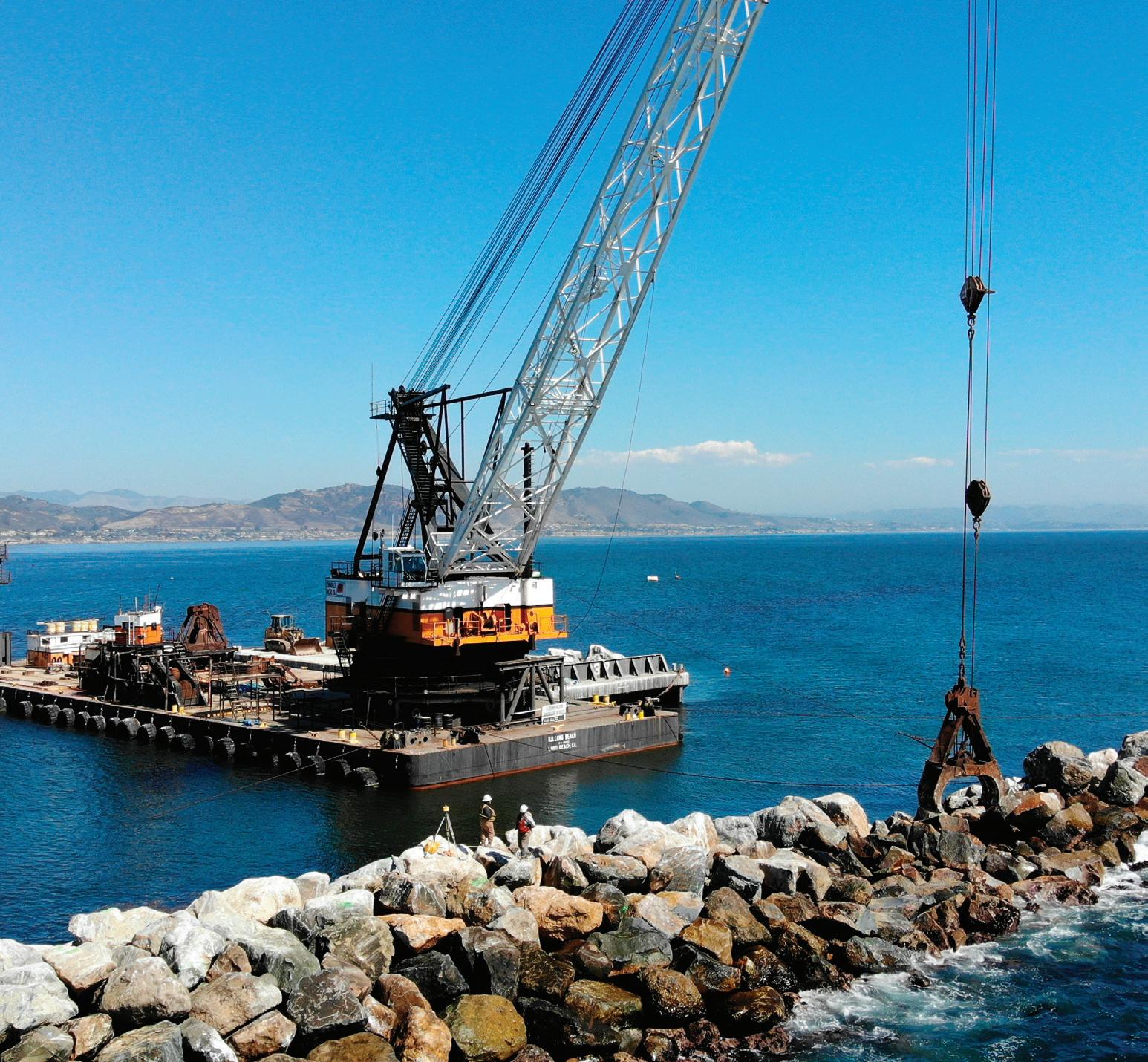
The barge and crane are gone now. However, that does NOT mean the job has been completed. Unstable winter weather will cause a temporary pause in this lengthy undertaking. The effort will continue in the late spring or summer, depending on wind and ocean conditions. Construction was delayed this year due to persistent wind, causing rougher seas, which continued later into the season than usual. The breakwa ter restoration is expected to be completed before the end of October 2023.
The breakwater is of immense importance to not only the safety of the vessels in the bay but to the marine facilities and piers. With out the breakwater, swells would be signifi cantly larger, allowing more powerful waves to slam into the beach, causing more harm to
the beloved Avila Pier. Ocean waves in the winter are particularly forceful and can cause damage to the breakwater, such as dislodg ing and movement of the massive boulders. Prior to the start of the venture, there was a visible depression in the breakwater, that was an obvious indication that more protection was needed. The US Army Corps of engi neers is responsible for the upkeep, mainte
nance, and hiring the company to rectify the structure, which was awarded to Connolly Pacific. Breakwater improvements in 1992 involved 15,000 tons. Damage caused by the Paso Robles earthquake in 2004 required 30,000 tons of repair. The current job is an even larger renovation involving 60,000 tons. Alterations consist of resetting existing stone and placement of new rocks. Boulders are
strategically selected and positioned. They are not randomly stacked, but instead placed in an artistic formation for optimal shielding.
Boulders that made up the original break water came from Morro Rock in Morro Bay. In the 1890s, chunks of Morro Rock were blasted, removed, and brought to Port San Luis to build the much-needed break water. The process continued until about 1913. Since these Morro rocks werecultur ally significant to the local tribes, the U.S. Army Corps of Engineers and tribes agreed to transport some of the removed boul ders and return them offshore near Morro Rock. It is interesting to note that new stone brought in this year and next year will come from a quarry on the backside of Catalina Island.
Maneuvering the huge slabs is not the only concern of the task. Areas of sensi tive eelgrass were carefully avoided or safe guarded. Eelgrass habitat is protected by federal and state law. One zone had to be deepened to allow the barge to have prox imity to the breakwater. To mitigate for any loss of eelgrass, additional plantings have been made near the project site. Biologists conscientiously determined suitable habi tat. The replanted and new eelgrass will be well monitored beyond the duration of the ongoing operation.

Overall, there is much more than meets the eye to fixing the breakwater. It will be interesting to watch the work continue. Be sure to schedule a stroll down the Harford Pier for one of the best vantage points. It is reassuring to know that time and care are spent to maintain Avila’s historic port.
A note of thanks to Chris Munson, Facili ties Manager, Port San Luis Harbor District.

making bells and balls of flowers to hang beneath chandeliers and over doors…
kathy mastako Board Of Directors Point San Luis Lighthouse Keeper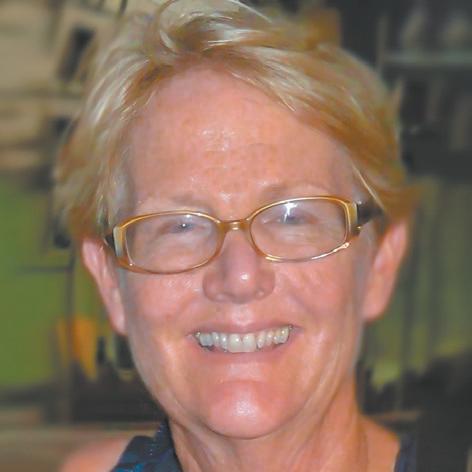
Keeper Henry Young and his wife Mercedes have been hard at work getting the keeper’s cottage ready for the holidays. Young, born in England in 1838, remembers well the drawing published in the Illustrated London News when he was 10, depicting Queen Victoria, Prince Albert, and their children gathered around the Christmas tree. He will continue this tradition with his own family for their first Christmas celebrated at Point San Luis. It’s December 1890, and the cottage is decked, inside and out, with seasonal decorations in the Victorian manner.
Keeper Young had long ago left Great Brit ain and sailed to America, but his relatives back in Manchester occasionally ship him Cassell’s Family Magazine. He saves these magazines, and shares them with his family. The articles about Christmas are particularly instructive:
To bring about a general feeling of enjoy ment, much depends on the surroundings… it is worth while to bestow some little trou ble on the decoration of the rooms. Have plenty of shining holly, and laurel too, and don’t omit the mistletoe…


Flowers brighten up a room wonder fully, and should you have enough to spare, I would advocate the American plan of
See that there is an abundance of Christ mas literature about…Be sure that your hearth burns brightly…An abundance of crackers and bon-bons add to the general fun…Everybody likes presents, and presents are inseparably connected with the season… Christmas-trees, which the Prince Consort introduced among us nearly forty years ago, have established their fame…hang the tree itself with beads and glittering balls brilliantly lighted, and set the presents round the table well wrapped up…
—Ardern Holt, 1881 edition
The Keeper is whittling a ship — a Christ mas ship — about two feet long; presents for his four children will be concealed in the hold. He’s skilled at whittling and, having been a mariner before becoming a lighthouse keeper, he has a fondness for all things nautical. For Christmas Day, he may propose a Shakespear ian reading in front of the fire, encouraging his family to study their parts beforehand and read carefully.
Mrs. Young has been fretting, as she always does, about the Christmas dinner. Again, Cassell’s provides some guidance:

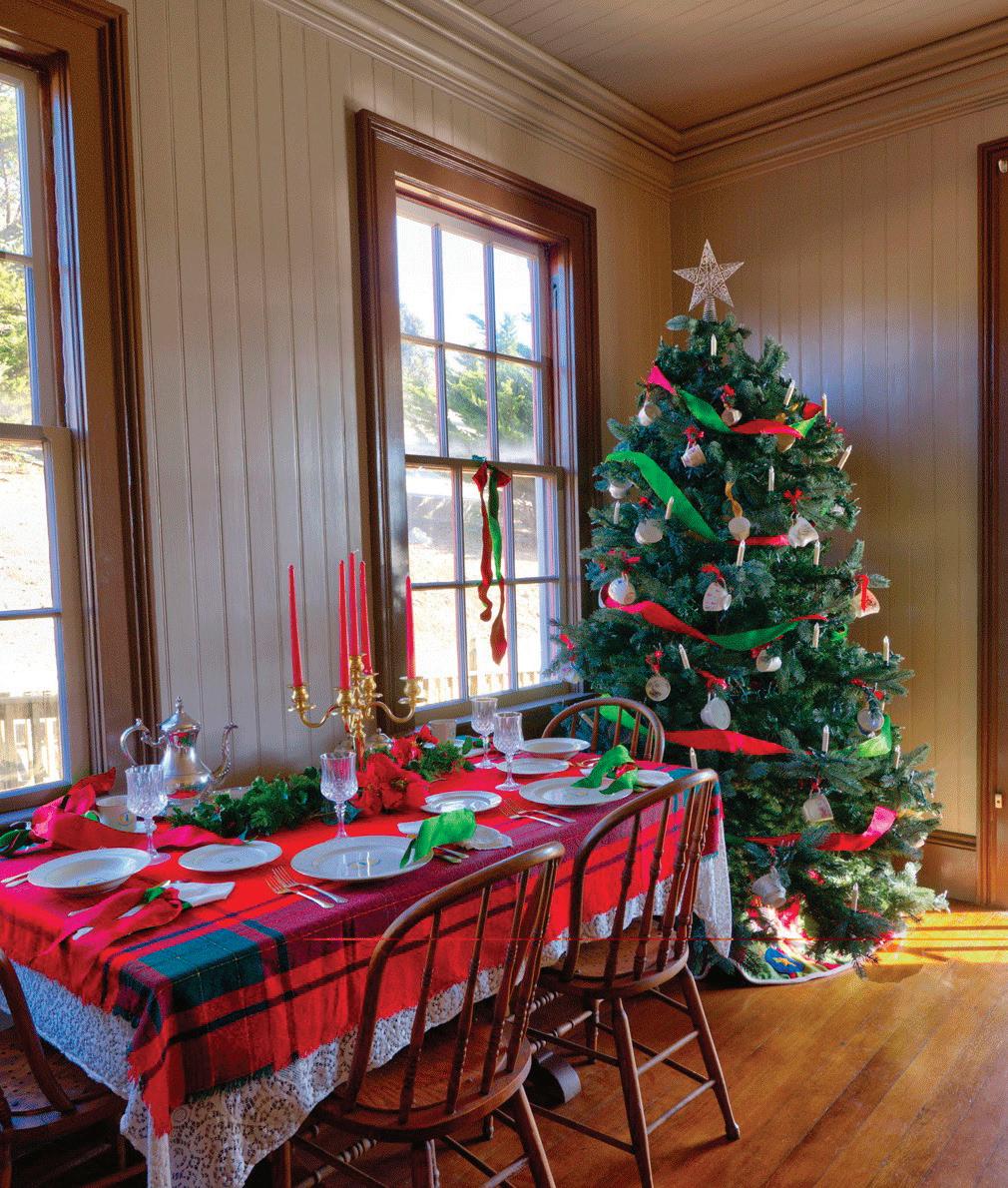
With regard to plum pudding, I think the chief fault, especially where there are chil dren, is that too great an effort is made to make it as rich as possible. It no more follows that the richest pudding is the best than that you would improve hot bacon by buttering it…
Mince pies are generally made a day or two beforehand, and cooks sometimes forget what a long time they take in getting hot enough. A mince pie to be worth anything must be hot enough to burn your mouth…
—A. G,. Payne, 1881 edition
She will make boiled turkey with oyster sauce for the feast, using not tinned oysters but fresh ones right from the sea. She would like to end the meal with some Stilton cheese and some fresh crisp celery, but it’s not to be had.
The Youngs are quite a hospitable family, and warmly welcome the many visitors who arrive at the light station. The station’s guest book, which Young initiated, attests to the steady stream of people eager to see this brand-new light station. And the Keeper is quite familiar with the guidance provided by the Lighthouse Establishment:
Keepers must be courteous and polite to all visitors…and show them everything of interest about the station at such times as it will not interfere with their light-house duties…Keepers must not make any charge, nor receive any fee, for admitting visitors to light-houses… —Instructions to Light-Keepers, July 1881
So, during the Christmas season, Young will dip into the Christmas bowl whenever he’s not tending to the light or fog signal, and offer those who visit a glass of wassail. He makes his wassail using Cassell’s instructions. And since he enjoys oratory, he might recite this verse:
Upraise the Christmas bowl to-night And let a health go round; To those we love in every land, To those who ‘neath our roof-tree stand, May Christmas joys abound.
To those that love us, joy and peace, Whether afar or near;
To old and young, to rich and poor, Be merry Christmas days in store, And hope in the New Year
On behalf of Mr. and Mrs. Young — and
their children Harry, Frank, Mary, and Joseph — you are warmly welcomed to visit the light station this month. The Youngs will open their home every Wednesday and Saturday, and will be on hand to greet you with a glass from the wassail bowl, some hot tea, and some Christ mas cookies as you stroll through the cottage and admire their decorating work.
To get directions and more information, visit my805tix.com.
Heat in a saucepan a pint of Burton ale, with half a pound of sugar, a grated nutmeg, and half an ounce of grated ginger; after it has just boiled up add a quart more ale, four glasses of golden sherry, and a couple of ounces of lump sugar that has been rubbed over the outside of a lemon. Add also a few thin slices of lemon. Make the whole mixture hot without boiling it, and add half a dozen roasted apples that have had the cores stamped out, but that have not been peeled.
Of course this must be placed in a bowl, which must be treated, as we said, with hot water. The sort of ale that must be used for the wassail-bowl is evidently strong old ale, like Burton or Edinburgh, and I should think the more sweet and oily the ale, the better the wassail. Mild ale or bitter ale would not answer, especially the latter.
—A. G Payne, 1877 edition, Cassell’s Family Magazine
Author’s note: “The Lighthouse at Point San Luis,” published by the United States Light house Society, is now available on Amazon. All proceeds benefit the United States Lighthouse Society and the Point San Luis Light Station, two non-profits dedicated to preserving light house history. If you know a lighthouse lover, or someone who enjoys local history, it might make a nice gift.

 John Salisbury contributor
John Salisbury contributor
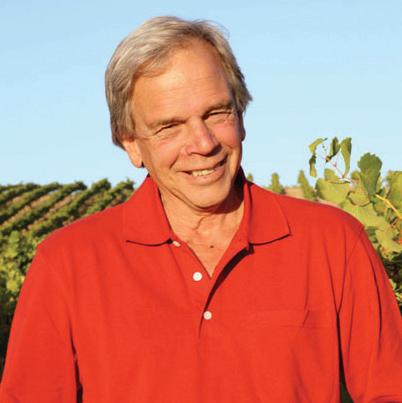
Wrapping up this series on Alternative Energy, here are a few other projects in progress:
Roadside Turbines: An interesting idea, in AltEnergyMag which is up-to-date with new innovations, is to harvest wind along highways with vertical turbines. More than 2.5 billion vehi cles generate wind turbulence in the world by pushing away air, which creates a steady amount of energy. Small efficient traffic wind turbines can operate with a fairly regular supply of wind, espe cially in heavy traffic stretches. Some of the ones running now are quite pleasing and architecturally designed. This process supplies energy for highway lighting at night and then during the day feeds back energy into the grid where the excess can be used or sold. This innovation could be beneficial in rural areas, especially in developing countries with no electricity lines needed, and powering traffic and sign lights in the cities.
Synthetic Limestone: Concrete is the most widely used human-made material in the world and is used for highways, buildings, bridges, dams, and other big projects. An article by Grist and the book “Climate Restoration” by Fiekowsky and Douglas delves into detail about how the process to make cement is pretty bad for the climate and is estimated that just concrete alone is responsible for 4 to 8 percent of total CO2 emissions in the world. Portland cement is the stuff that holds together the quarried mix of gravel, sand, or aggregates to make the finished cement. It is made from limestone also quarried and then heated in kilns with super high temperatures which release huge amounts of CO2 in the process. A new method pulls CO2 out of the atmosphere, from the kilns, or industrial exhaust pipes and turns it into synthetic limestone.
Brent Constantz, a marine biologist, and his company, Blue Planet, captures CO2 and dissolves it into a solution. This process creates carbonate that reacts with calcium from waste materials, used concrete, or rock to create calcium carbon
ate, which is the main ingredient in limestone, and turns the resulting stone into pebbles that act as the aggregate. Using this synthetic limestone, eliminates the need for the gravel or stone that needs to be dug up, hauled, and crushed resulting in a carbon-neutral product.
Biofuels: From the Department of Energy (DOE), biomass can be directly converted into liquid fuels contributing to meeting fuels needed for vehicle transportation. The two main types of biofuels are first-generation ethanol and biodiesel. Next-generation biofuels are made from cellulosic biomass, wastes, and algae-based products.
The Bioenergy Technologies Office (BETO) direction is the production of hydrocarbon biofu els, known as “drop-in fuels”, that can be petro leum substitutes in existing refineries, tanks, pipelines, vehicles, and smaller engines. DOE is funding several new projects focused on devel oping processes and technology that process low-cost, low-carbon biofuels, and advance biore finery development and feedstock improvement for renewable diesel products.
Wireless Charging Roads: Electreon, an Israeli company, is developing roads into wire less chargers. The technology uses rubber-coated copper coils 3.15 inches below the pavement that transmits magnetic induction from the grid to a receiver under an electric vehicle traveling or stopped over the copper coils. A commercial truck with five receivers traveling 37 mph needs 37 miles to fully charge the battery. This is ideal for a predicted bus route and when parked at the bus yard or a ZEV stuck in traffic over one of these systems.
Trees and Seaweed: Obviously, more trees and seaweed, which are the lungs of the earth, need to be established and our full attention because they draw out CO2 from the atmosphere, bury the carbon, and release oxygen (photosynthesis). Simple and cheap. Too many habitats are being destroyed, the Amazon forest for one, and needed replacements are critical. Trees are a given but they absorb carbon slowly but release much of it when they rot so it is important to harvest the dead trees and make them into many products. There is nothing that competes with seaweed with its fast-scaling photosynthesis because they grow
rapidly, sequester carbon for centuries, pull carbon out of the air 10 times faster than any plant, and have a whole ocean to grow in. They are farmed for many uses and provide much of the livelihoods and food for many coastal areas.
Abandoned Mines: Pumped-storage hydro power projects are under development. This process uses abandoned mines and mining pits to hold captured water when it is plentiful. This water is pumped up to a higher reservoir creating a gravity flow system that recirculates the water in a loop process with drop-turning turbines producing electricity like those used in dams, but reusing the water and not a one-time event as in modern dams.
There are a lot of alternative domestic energy projects in production that can wean us off of being so dependent on foreign countries that do not like us putting us in a bind like what Russia is doing to Europe. We need to put more money into the domestic development of modern nuclear plants — fission and fusion, green hydrogen, and many of these other new alternative energy ideas or be beholden to countries like China.
Finally, we need to continue fossil fuel use as a transition to alternate energy until we can be domestically energy-independent and exporters with a market-driven mix of both.
‘You know what my favorite renewable fuel is? An ecosystem for innovation”. - Thomas Friedman


Have your cake and eat it too? Skate on thin ice? Go around twice in life? Really love your enemies? Lose weight while sitting in a chair? Invest in the stock market while protecting your capital? Oh wait, you can do that!
“Buffered” investments allow investors to profit from gains in major stock market indexes while providing up to 20% protection from downside losses. If you are an index investor and are concerned about your money (and who isn’t), please call or email to learn more and to receive a prospectus and important information. You can also go to my website to view a short video that explains the details.



